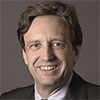Bernanke to World: We're Going to Fiddle While Rome Burns
In Jackson Hole, Wyoming today Fed Chairman Ben Bernanke said the risk of an “undesirable rise in inflation or of significant further disinflation seems low.” Yup, can’t argue with that.
If you are operating a bank, and you had lost your depositors’ funds by making bad real estate loans, normally you would be sweating bullets by now, or among the 14.6 million pounding the pavement looking for work. But you need not worry. You got $1.3 trillion of reserves to tide you over while your bad loans continue to deteriorate.
Uncle Ben bailed you out, and he even gave you the money to pay back your other uncle, Sam. Now that you got rid of the TARP, you can go back to paying out big bonuses, even if they are on profits facilitated by the easing of accounting rules.
So why is the spotlight on Ben now? Some employment, consumer confidence, and even national income data have weakened a little. But mainly the stock market has everyone a little scared. Big bank stocks have acted like a canary in the coal mine, failing to do much since a year ago.
Some regionals have been sliding since this spring, in sympathy with FDIC Chairman Shiela Bair’s laying to rest a growing list of institutions outside the money centers. How come? Home prices are down maybe 30% from the top, which wipes out the equity of most “conservatively” financed purchases.
Since real estate is about half of bank assets, another drop of say 15% would mean trouble. The FDIC has the barest sliver of funds. So outside of getting fresh Fed reserves into dodgy regionals, something the Fed is wont to do, the safety of your deposits rests on a thin reed.
Not to worry, a diverse group of economists, real estate experts, investment and market strategists surveyed by MacroMarkets in June 2010 project that the U.S. housing market will experience double-digit cumulative appreciation between 2010 and the end of 2014, adding some $1.7 trillion to aggregate household wealth.
Bernanke draws from the body of econometric knowledge generated by academics, which has proven beyond dispute that gold is a barbarous relic, and that the consumer price index, along with national income accounts, are the best indicators of whether we are launching into inflation or falling into a deflationary rathole.
The media is hot and bothered as to whether the Fed will print a trivial amount of money again like it did in 2009, when in reality the printing presses shut down in 2008. Before everyone was all loaned up, banks used to print money – gobs of it – every year, maybe $1.5 trillion annually. Now broad money is shrinking.
Being an economist of the Austrian school, I see why many of my brethren focus upon the explosive growth in the monetary base that has occurred under Bernanke, and why they focus upon the “true money supply,” which also rose quickly once the fix was in.
But Ludwig von Mises, the father of this strain of economists, taught that money existed in two forms: money and money substitutes (i.e. deposits). Today the two are indistinguishable, whereas in times past gold or gold-exchangeable dollars were the reserve upon which the system was pyramided. No one asks you if your check or electronic payment came from the base or the tip of the pyramid, they just want bills paid.
Bernanke and the monetarists and Keynsians are riding horses with two blinders on: no deflation on the left, no inflation on the right. But their steeds are running downhill, towards a glen filled with thorns and rocks.
With the banks insulated from the credit crisis, mainstream economists are like the patrons of Nero’s orgy, listening to the reassuring strains of Uncle Ben’s fiddle while the houses of Rome are burning. I can’t imagine a banking establishment or its titular leader more out of touch with mainstream America, clueless as to the most basic observation that it has run a fractional reserve lending system into a generational-sized ditch.
Regards,
Bill Baker,
for The Daily Reckoning
[Editor’s note: William Baker is the author of “Endless Money: The Moral Hazards of Socialism. You can get your own copy of his book here. You can also follow his commentaries on The Conservative Economist.]


Comments: